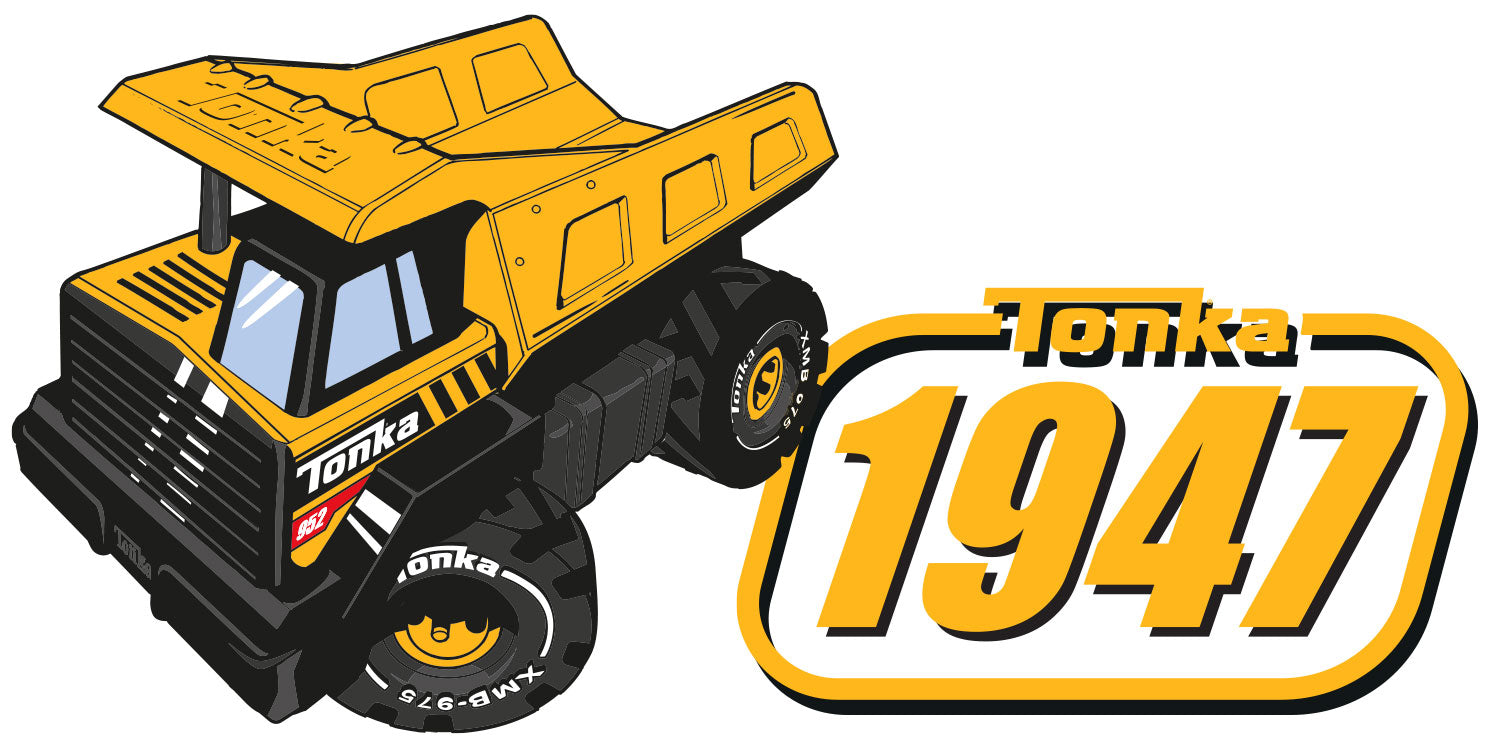
New brand – Tonka!
Tonka is a toy company from Minnesota that has a special place in many hearts. Part of what made the Tonka unique was that it was an early adopter of trucks and construction vehicles with moving parts along with extremely robust metal construction.
The company started as a metal foundry, whereupon it was natural to use sheet metal as a material for the toys, which gave them a durability that set them apart from many other plastic toys on the market. Their motto "A toy shouldn't break just because a child plays with it" made them the first choice for outside toys that could be left outside all year round.
The authenticity went so far that in the beginning they chose rubber tires and the same sheet metal used by car manufacturers, which made the toys so heavy that children had difficulty playing with them.

History of Tonka
Tonka Toys was founded in 1946 in Mound, Minnesota, USA. From the beginning, they mainly produced and sold garden tools, but over time came across rights to drawings for toys.
During the 1960s and 1970s, Tonka became a leading manufacturer of toy vehicles in the United States and worldwide.
The town of Mound is located on a peninsula that juts out into Lake Minnetonka in Minnesota from where it got its name.
Rise and fall
By 1975, Tonka had become a global giant, with facilities spread across eight different countries and the Mound factory where the toys were made had over 2,000 workers.
In 1987, Tonka paid to buy British toy giant Palitoy for $555 million which eventually became the company's downfall. The purchase, which was mainly financed through debt, was unfortunately not very successful, which led to the closure of the factory in Mound and the company being bought up by Hasbro in 1991. The same company that owns My Little Pony, Magic The Gathering, Transformers, Dungeon & Dragons and many more famous trademarks.
Tonka's toys are unique due to their durability, quality and realistic design.
What is your best memory of tonka?

